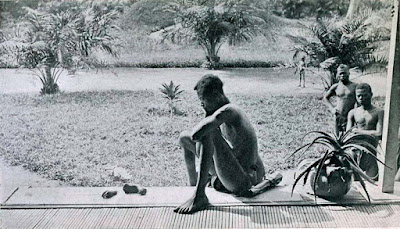Justifying Colonialism

The fact that even now, after most of the world has acknowledged that colonization is an evil that must be eradicated, people still debate its merits and occasionally argue for its return, is a testament to the complexity that comes with colonization. Regardless of the ways in which people (sometimes myself included) try to propose colonialism as being a simple binary or something with clear moral boundaries, the process itself and the way it becomes deeply entrenched and embedded, means that long after the colonizer's flag is gone and no one is whipping or punishing anyone directly, people will still embody the logic of the colonizer's assertions of their superiority or the necessity of their dominance. In Guam we see this manifest in so many ways, despite Guam being one of the oldest remaining colonies in the world. People argue that Guam didn't suffer or isn't suffering. They argue that without colonialism Guam would be filled with pagan, naked savages. They argu

